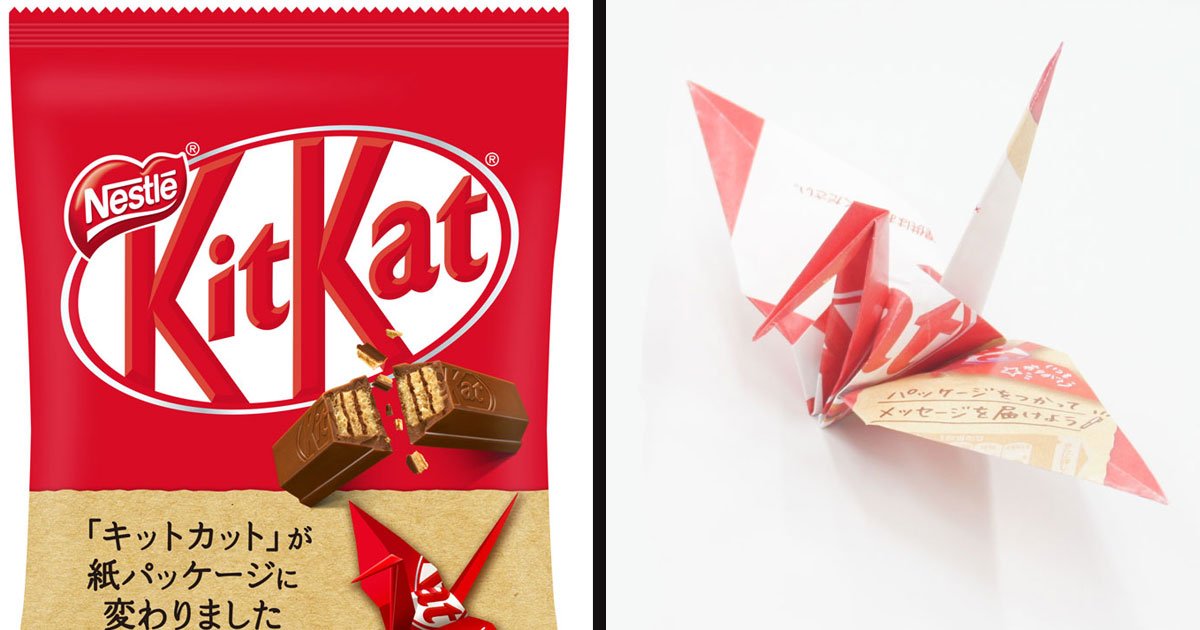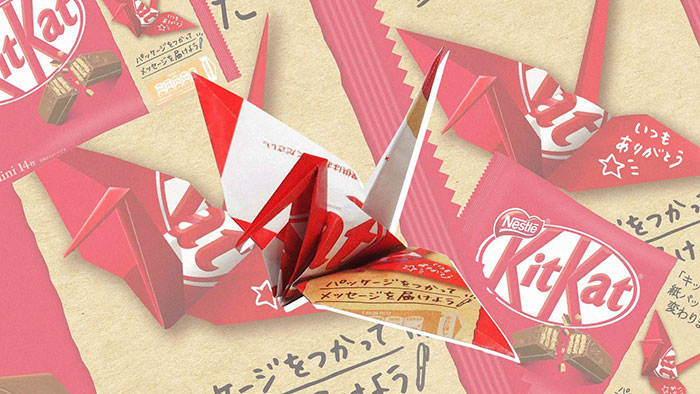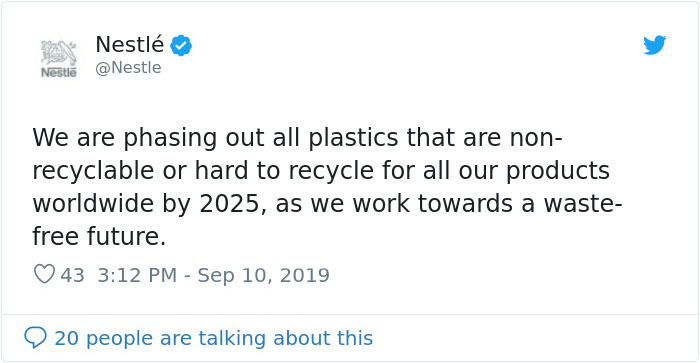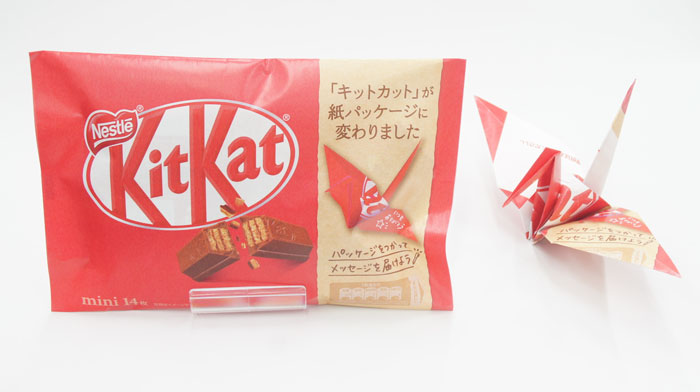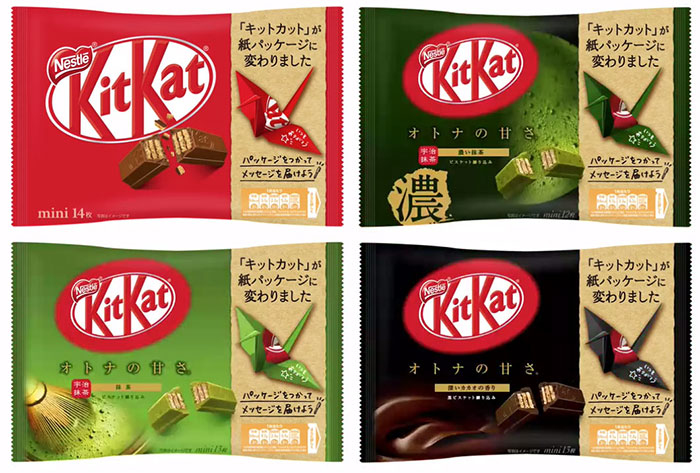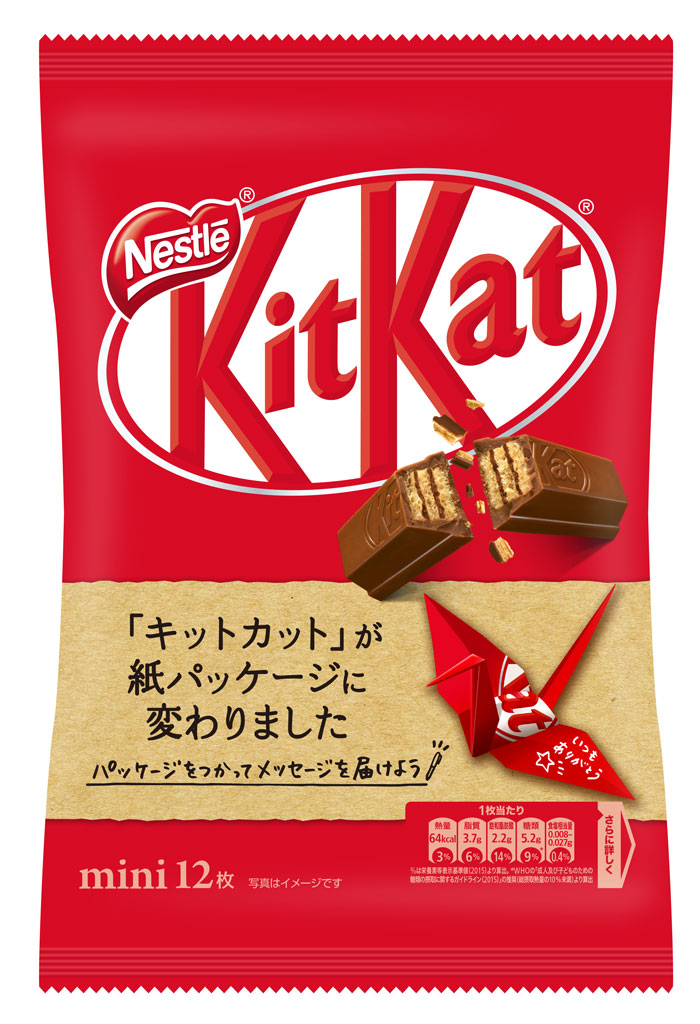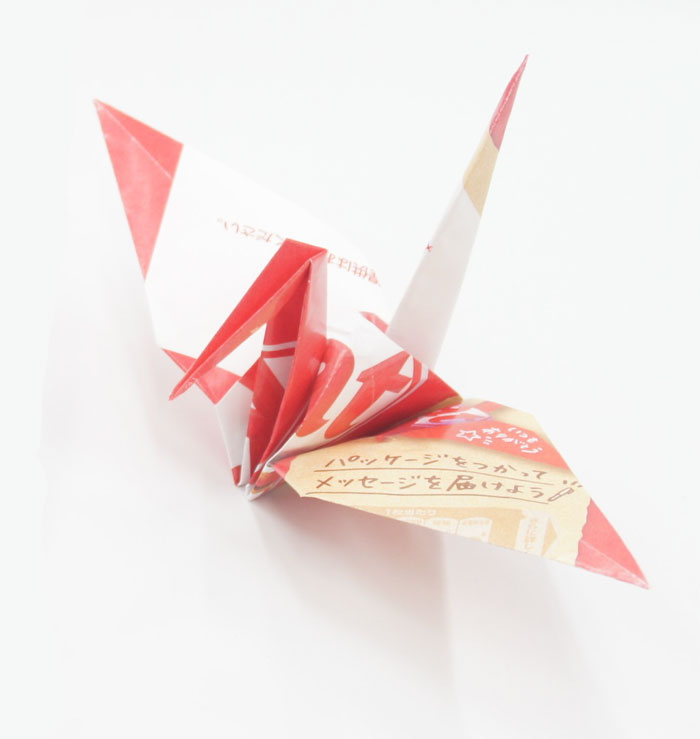Greenwashing.
Do you know about it? Nestle, is one of the world’s biggest producers of plastic trash. The company faced scandals over the years and have repeatedly shown that they have low ethical standards and little interest in social responsibility. For these reasons, marketing stunts like these, designed to go ‘viral’ and get people talking about them in a positive light.
Nestlé Japan got the attention after announcing that they are replacing its glossy plastic wrappers with more environmentally- friendly paper ones. Added to this are bonus origami instructions, so you can create an iconic paper crane design instead of throwing your waste away.
The world’s biggest food brand is ready to make 100% of its packaging recyclable or reusable by 2025, after facing extreme pressure from environmental groups.
Greenpeace Plastics Campaigner Kate Melges says that “Nestlé has created a monster by producing endless quantities of throwaway plastics that persist in our environment for lifetimes.”
The NGO has started a campaign called #PlasticMonster, which is working to stop the production of single-use plastics. “Over 90% of the plastic ever produced has not been recycled, yet companies are set to dramatically increase the production of plastic packaging over the next decade,” they write.
“People living along rivers and coastlines in Southeast Asia and other communities around the world are among the most impacted by plastic pollution. Even though excessive production of single-use plastic for packaging is the real cause, these communities are often blamed for this crisis.”
“Companies like Nestlé are the ones responsible for the plastic monster that is destroying our planet. But they also have the power to slay this monster by reducing the amount of single-use plastic produced.”
Nestlé has estimated that the new step will help to reduce the brand’s plastic waste by approximately 380 tonnes per year. However, some people believe that this is just nowhere near enough.
Nestlé’s statement on plastic packaging includes more of the same greenwashing baby steps to tackle a crisis it helped to create,” Greenpeace Oceans Campaigner Graham Forbes says. “It will not move the needle toward the reduction of single-use plastics in a meaningful way and sets an incredibly low standard as the largest food and beverage company in the world.
The statement is full of ambiguous or nonexistent targets, relies on ‘ambitions’ to do better, and puts the responsibility on consumers rather than the company to clean up its plastic pollution.”
“Identified as one of the worst plastic polluters in cleanups and brand audits around the world, Nestle is accountable to do more to address the problem. It is in the position and has the power and resources to phase out single-use plastics towards zero-waste in its packaging.”
This is a good initiative by KitKat Japan, something that is both positive in reducing single-use plastics and fun for the consumer.
Recommended Video
“Grateful Son Surprised Mom With Brand New House”
[rumble video_id=vhtas domain_id=u7nb2]


